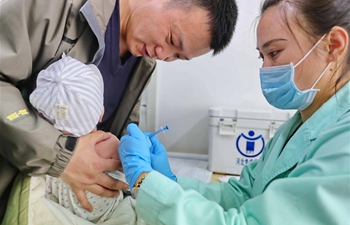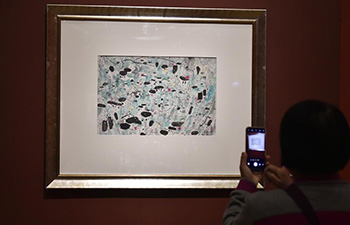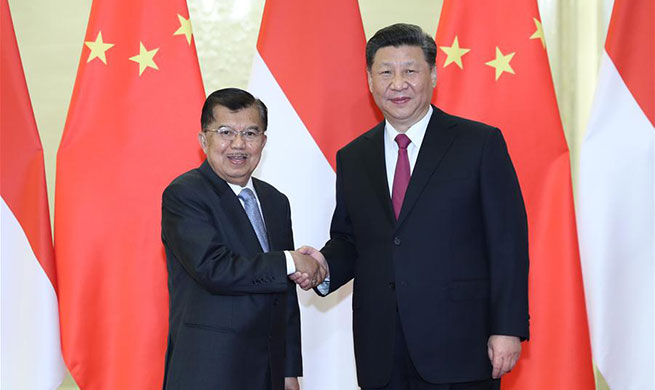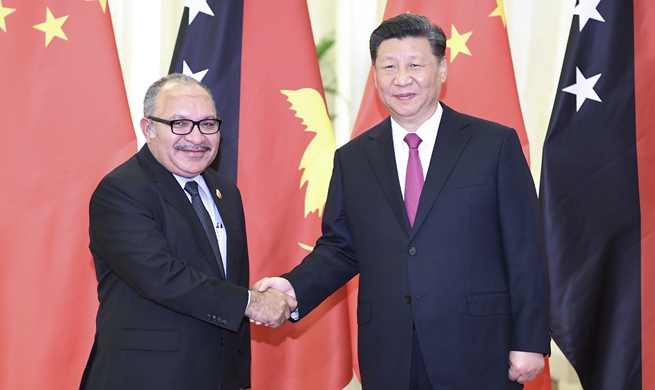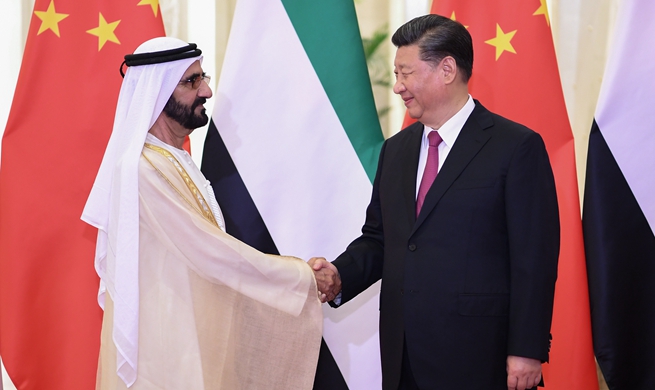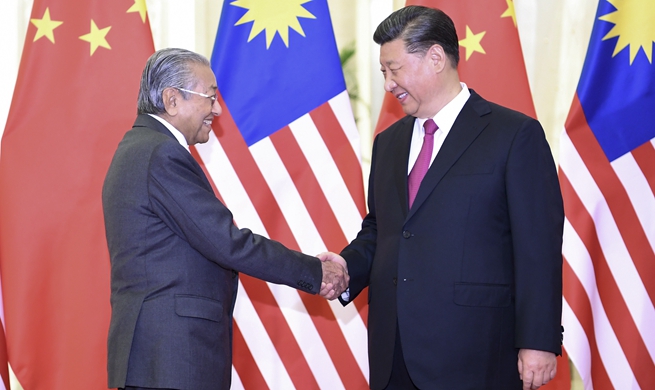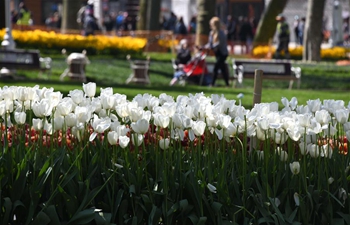By sportswriters Song Rui, Wang Haoyu and Wang Hui
TIANJIN, April 26 (Xinhua) -- 15-year-old Shi Hongwang and his three friends became obsessed with Chinese wrestling after watching a professional game in 1978 and immediately chipped in to buy a wrestling outfit.
They also made a deal that one of them would only be allowed to wear it if they competed in a Chinese wrestling competition.
A few years later, Shi became the national champion of Chinese wrestling. A wrestling outfit was no longer anything to worry about. Instead, his new priority was how to keep Chinese wrestling alive.
Dating back to the late Qing Dynasty (1644-1911), the city of Tianjin enjoyed its reputation as a gathering place for wrestlers. And the wrestling culture particularly prevailed in the small Tianmu village, in north Tianjin.
Born in 1963 in Tianmu, Shi was immersed in the Chinese wrestling since childhood, influenced by his father and brother. However, due to the limited facilities at that time, Shi received only some basic amateur training.
At that time, a crowd of people always gathered round during wrestling competitions and a commentator would provide animated descriptions of the action. Shi always watched carefully and tried to pick up some skills and techniques.
After years of practice, Shi's earlobes have been badly worn due to the frequent rubbing with his opponents' head or shoulders. However, he still insisted on wrestling for more than 40 years and won numerous awards related to Chinese wrestling.
As the coach of an amateur wrestling team, Shi taught hundreds of people the skills of Chinese wrestling.
"The first lesson for a beginner is to be brought down," Shi said, adding that it took at least three to five years of training to become a qualified wrestler.
"Chinese wrestling focuses on skill rather than power. It's easy for a slight man to bring down his strong counterpart." Shi said the criteria for winning or losing was by judging if one's hand or body touched the ground together with the feet.
However, Chinese wrestling declined in popularity after it was dropped from the country's national games in the 1990s, after having been formally listed as an event in 1953.
Many professional wrestlers left for other professions due to the lack of large-scale official events, a cumbersome registration system, and the financial burden of participation.
In the face of such insurmountable odds, Shi briefly flirted with the idea of giving up, but soon changed his mind. "Chinese wrestling is a traditional sport, in which we must put all our effort. I couldn't stand by to see it become so underwhelming," Shi said.
In 1999, the Tianmu wrestling club was established with the support of the local government. The trainees' tuition fees and the venue maintenance costs were shared by the local government and Shi himself.
Shi's determination to improve the standing of Chinese wrestling deeply influenced his apprentice Mu Dongli, 37, who won the sport's national championship in 2006.
Since 2016, Mu and other club members have been spreading Chinese wrestling to six primary schools and one middle school in Tianjin.
Gao Shujing, principal of Anguang Primary School, said over 40 of the school's 385 students chose to join the Chinese wrestling club, making it one of the school's most popular clubs.
Every day on the school playground, dozens of students stand in pairs wearing white loose waistcoats tied with red or blue belts, and try their best to wrestle their opponents down.
"Not only did I exercise by learning wrestling, but I was also delighted to win third place in last year's youth judo championships in Tianjin," said 11-year-old student Ren Guiting.
"Students' willpower and self-consciousness have greatly improved after learning Chinese wrestling," Gao said, adding that some had won awards in municipal competitions, which in turn drove more students to learn Chinese wrestling.
If students perform well in Chinese wrestling, they can be registered as athletes with their local sports bureau, and may be enrolled into well-known sports colleges for professional training, according to Shi.
"We hope students like this traditional Chinese sport and pass it on to more people in the future," Shi and Mu said together.





